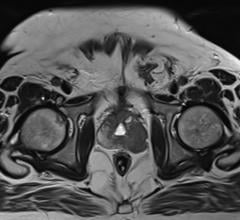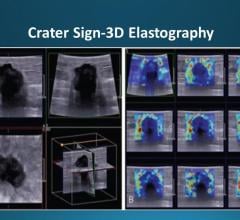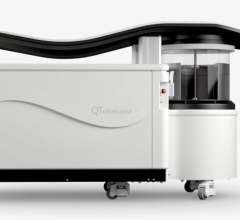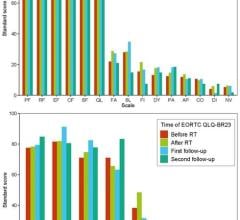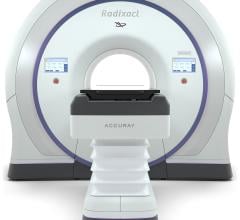June 5, 2014 — The American Society for Radiation Oncology (ASTRO) has issued a new model policy for proton beam therapy (PBT) that details which cancer diagnoses meet ASTRO’s evidence-based standards and should be covered by private insurers and Medicare. Developed by leading radiation oncologists and medical physicists, including significant input from expert representatives in proton therapy, this model policy supports PBT coverage for appropriate patients and identifies areas where coverage with evidence development and further research are needed.
PBT is neither a new nor an experimental technology for treating cancer with radiation. It utilizes proton radiation particles to deliver highly conformal radiation therapy to a specific tumor target area while giving a much lower dose to the normal tissues in the proton beam’s path of entry and exit. PBT’s reduced radiation dose to healthy tissues is attractive because it can reduce side effects for patients, which potentially increases their quality of life. To date, scientific evidence exists confirming that PBT is particularly useful in a number of pediatric cancers, particularly those in the brain, as well as for certain adult cancers such as ocular melanoma. Additional research on other cancer disease sites, such as breast, prostate and lung, is ongoing with NCI-supported clinical trials currently accruing patients in all three disease sites at the more than 14 proton therapy treatment centers around the country. PBT has attracted significant attention due to its relative cost, which can be dramatically more than traditional external beam radiation therapy due to the significant expense of building and maintaining proton therapy centers.
“Proton beam therapy is demonstrating promise in our continuing efforts to improve survival and cure rates for cancer patients while reducing side effects,” said Colleen A.F. Lawton, M.D., FASTRO, chair of ASTRO’s Board of Directors. “As the leading experts in radiation oncology, it is important for ASTRO to provide balanced, evidence-based guidance to payers that ensures access to PBT for cancer patients while being judicious stewards of our nation’s and our patients’ financial resources.”
This model policy recommends two coverage groups for PBT: 1) patients with specific diagnoses for which PBT has been proven to be effective; and 2) patients with cancer diagnoses where evidence of effectiveness of PBT is still emerging, and therefore coverage with evidence development is recommended for patients if they are enrolled in clinical trials or a multi-institutional registry to collect data and inform consensus on the role of proton therapy. This model policy is consistent with ASTRO’s previous statement on the use of PBT for prostate cancer, as well as ASTRO’s Choosing Wisely list issued last September. In addition, ASTRO urges private insurers and Medicare to cover PBT for cancer patients with difficult-to-treat, rare or highly complex cases for which the characteristics of PBT offers advantages over other forms of treatment.
ASTRO model policies are developed to communicate what ASTRO believes are correct coverage policies for radiation oncology. The ASTRO model policies do not serve as clinical guidelines, and they are subject to periodic review and revision. The ASTRO model policies may be reproduced and distributed, without modification, for noncommercial purposes. ASTRO has previously issued model policies on coverage for brachytherapy, intensity modulated radiation therapy (IMRT), stereotactic body radiation therapy (SBRT) and stereotactic radiosurgery (SRS), and they are available online at www.astro.org/ModelPolicies.
The PBT model policy was approved by ASTRO’s Board of Directors on May 20, 2014, and is available online atwww.astro.org/protonmp.
For more information: www.astro.org


 April 25, 2024
April 25, 2024 

